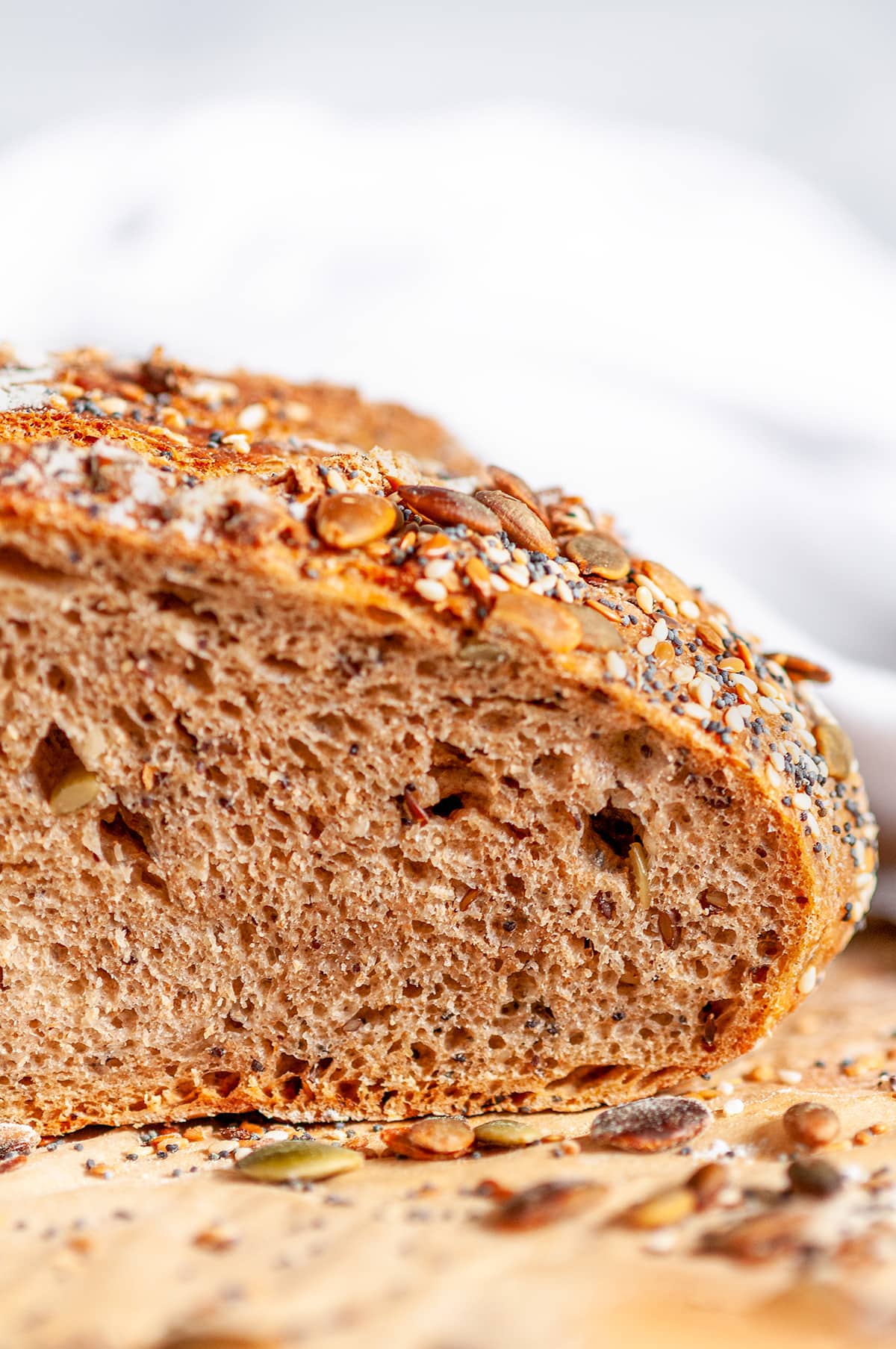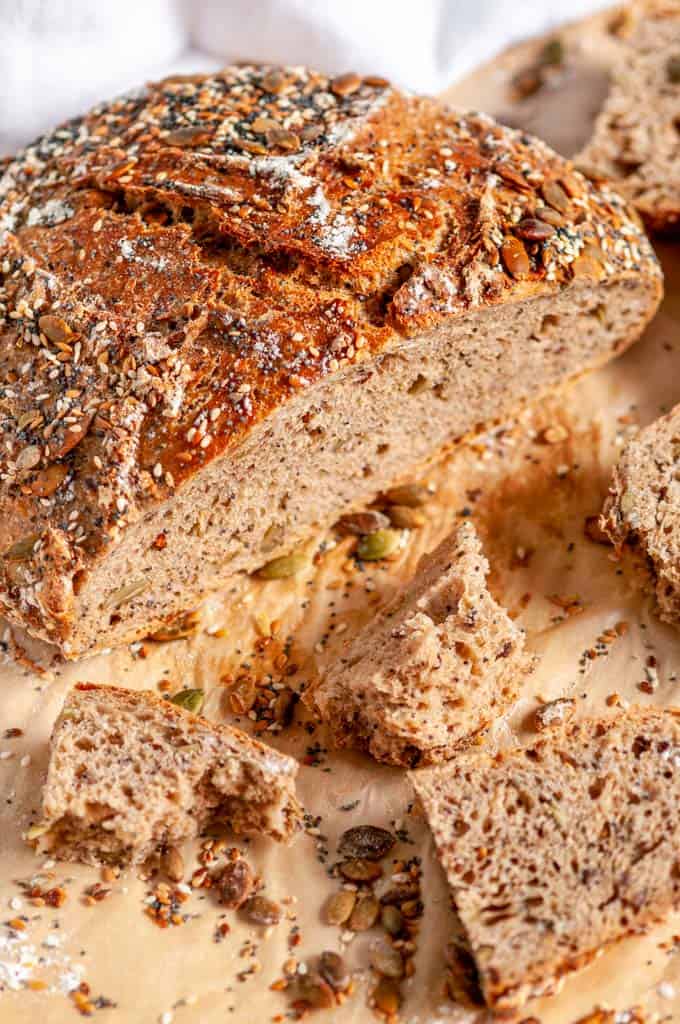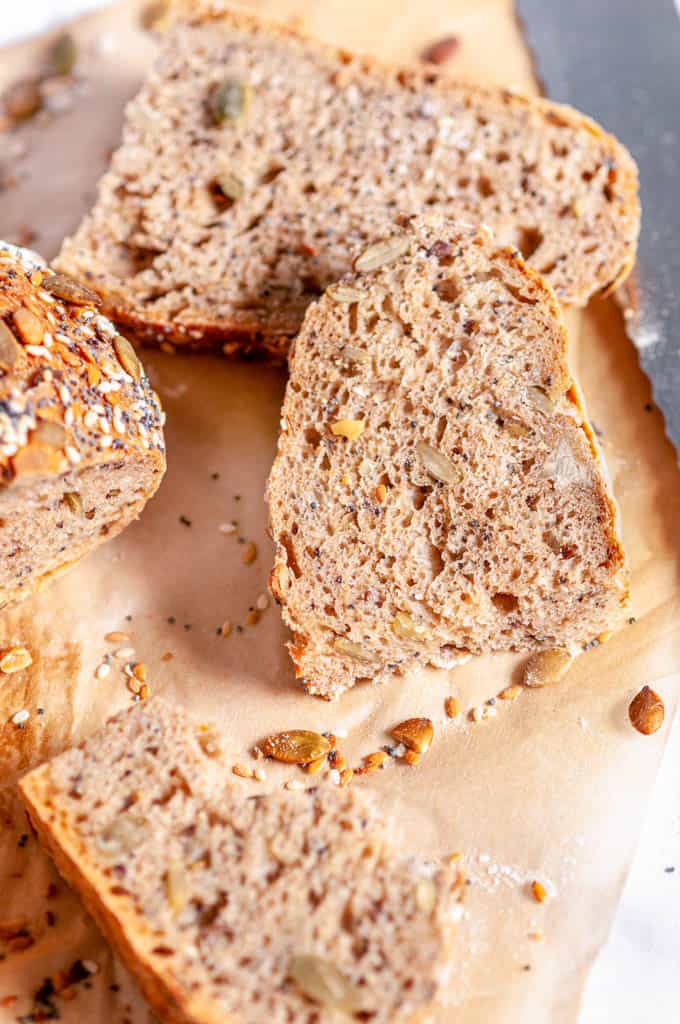No Knead Multigrain Bread

Another artisan no knead bread for the win! This time, let’s try a no knead multigrain bread version.
Whenever I buy a baguette or a loaf of fresh bread from the bakery, I always lean towards seeded breads. More flavors, more textures, extra yums! So why not try a homemade version?
For this no knead multigrain bread, I used half unbleached, all purpose white flour and half whole wheat flour. TBH, this is the first time I’ve ever done a no knead bread recipe using whole wheat flour and I was pleasantly surprised! It really helps deepen the flavor as well as improve the texture of the crumb.
Oh and those seeds? Pepitas, white sesame seeds, poppy seeds, and flax seeds. That’s it!
Ingredients
FOR THE BREAD
- 1 ½ cups all purpose, unbleached flour
- 1 ½ cups whole wheat flour
- 1 ¾ teaspoons coarse salt
- ½ teaspoon active dry yeast
- ¼ teaspoon white sugar (to activate yeast)
- 1 ½ cups warm water (around 110°F)
- 3 tablespoons pepitas
- 1 tablespoon sesame seeds
- 1 tablespoon poppy seeds
- 1 tablespoon flax seeds
FOR THE TOPPING
-
- 1 tablespoon pepitas
- 1 teaspoon sesame seeds
- 1 teaspoon poppy seeds
- 1 teaspoon flax seeds
- Milk, for brushing*
Instructions
-
- Activate the yeast: Pour warm water into a small bowl. Sprinkle yeast on top. Add sugar and give the mixture a small stir. Place the bowl in a warm place for about 10-15 minutes. Be patient! If yeast is activated, you will see foam on top of the mixture, and even a few small bubbles. Also, if you take sniff, it will smell very much like yeast.
- In a large bowl, whisk together flour, salt, and seads for the bread. Add water and yeast mixture and mix until just combined into a sticky, shaggy dough. Cover the bowl with plastic wrap and let sit in a warm, dry place for 12-18 hours. After the dough has risen for at least 12 but preferably 18 hours, it should look loose and very moist with some bubbles on the surface.
- When the dough is ready, preheat the oven to 450˚F. Place a 6 to 8qt dutch oven or cast iron pot in the oven to heat up for 30 minutes before baking. Mix together seeds for the topping in a small bowl and set aside.
- Place dough on a well floured surface and, using plenty of flour on your hands, gently pat it into a ball shape. Score the top of the dough as desired.
- Place dough onto a piece of parchment paper and brush the top with a little milk. Sprinkle the top of the dough with the toppings mixture. Cover with saran wrap while you wait for your pot to heat up.*
- Remove the saran wrap and place both the parchment paper and the dough into the heated pot so that the parchment lines the bottom.
- Place on a middle rack and cook, covered, for 30 minutes. Remove the cover and cook another 10-15 minutes, until bread is golden. Cool on a wire rack.




